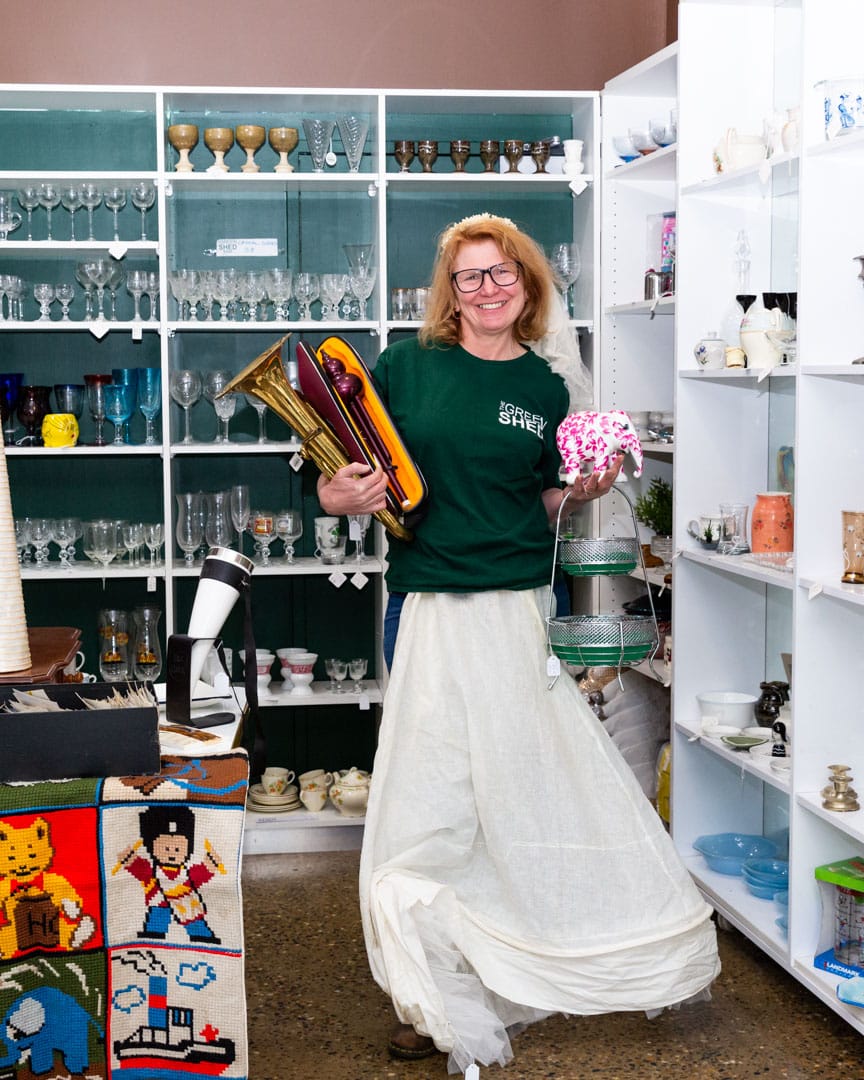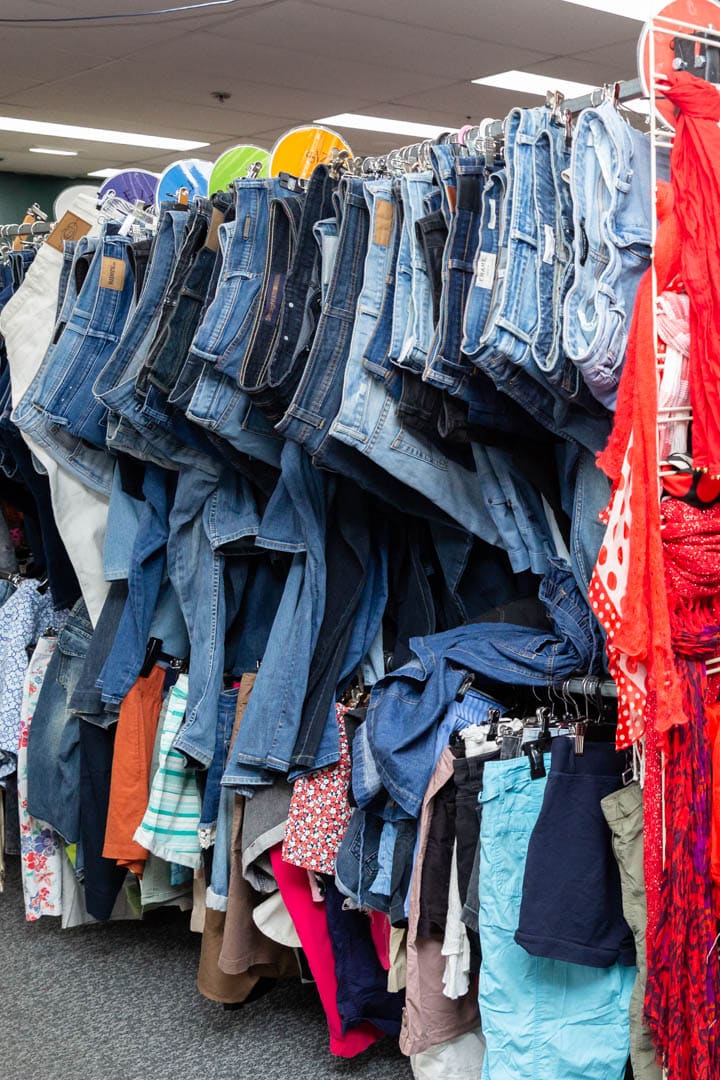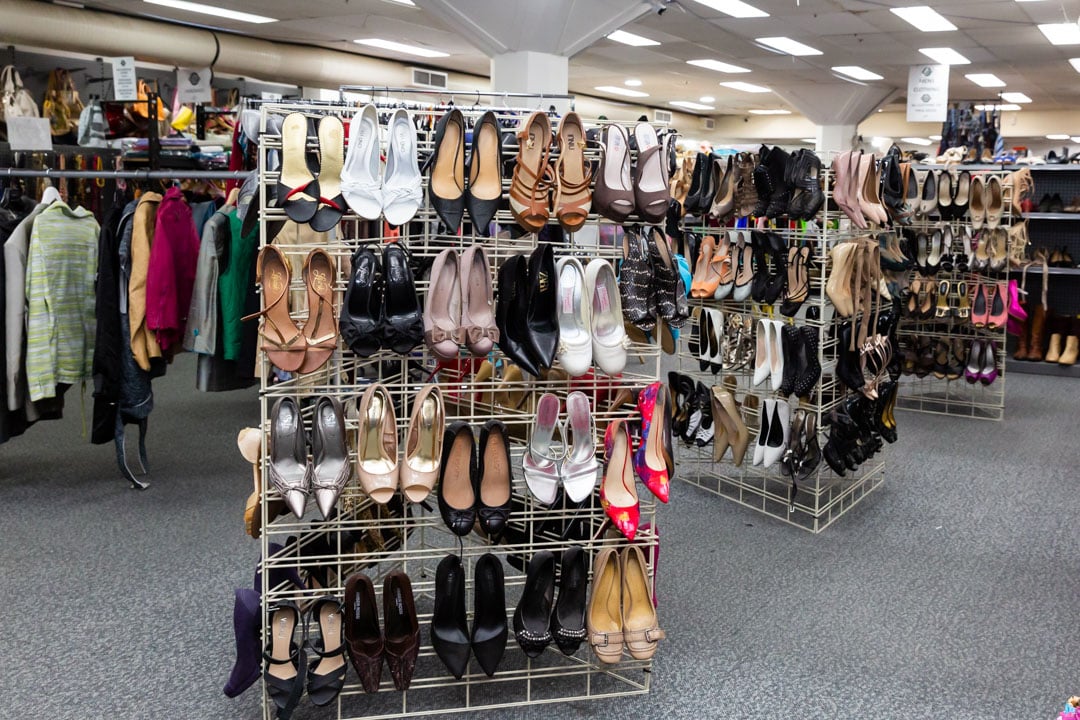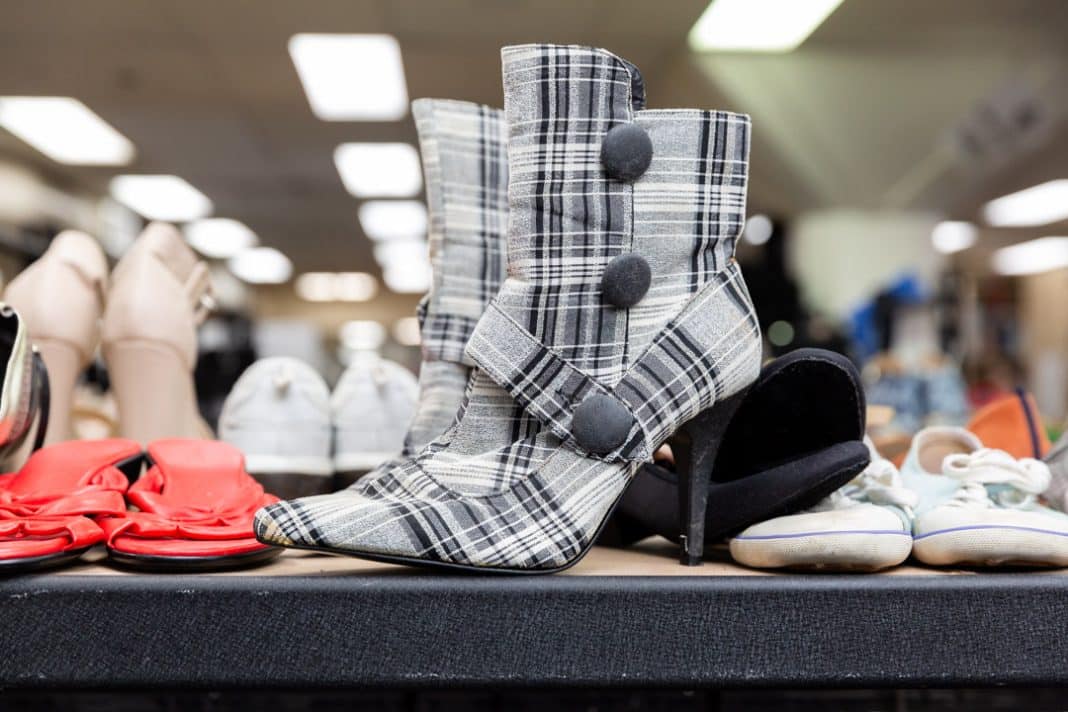With eBay and the public’s awareness of how valuable their unwanted items could be, Sandie Parkes feared Canberra’s iconic reuse operation, the Green Shed, might shrink and die.
“But instead, it just gets bigger and bigger! … An explosion in people buying more and more things.”

What that says about the consumer society is “absolutely terrifying”, she feels.
She wonders if people are growing more aware, or if Amazon and online shopping will make the problem worse.
When people buy online, they are more likely to throw things out because the goods are not what they expected, she believes.
Recently, someone brought in a brand-new table and chairs they had bought from Ikea that morning, because they did not fit in their flat.
January is the most hectic month, as people clear out their rooms. Queues of cars stretch as far as the eye can see, and each car contains what Ms Parkes calls a ‘trifecta’ of books, clothes, and toys.
The Green Shed accepts everything (unless it is broken, dirty, or so big it can’t fit in the Sheds).
Some of the toys it gives away for free. There are mountains of clothes; they don’t get to the bottom of them until March. Eighty or 90 per cent go to Koomarri, 15 per cent are given away free, and the other five per cent go to the shops in Garema Place.
“The public seem to be trained to bring stuff to us,” Ms Parkes said.

“We are forever grateful that they do. It is just a non-stop circle of things coming through. Sometimes it’s demoralising how much stuff there is! There are things we get so much of, we don’t really know what to do with them – but we do concentrate on volume. We want to get as much as possible in the back door, and as much as possible kept in circulation.”
Ms Parkes advises the public to buy less, and to think about what they buy.
“Why would you buy something to put your flipping boiled egg in? Why would you buy a cup and wrapping paper and Sellotape and ribbon, wrap it all up, and give it to someone who’s going to just give it to us? Don’t do it. Find something else to do for someone.”
Watching the ABC’s War on Waste (2017), she was aghast to see girls getting rid of clothes after wearing them only once.
“Don’t do that!”
Cotton clothing is hardly sourced ethically, she argues – it takes 2,700 litres of water to make a single cotton shirt, and textiles take more than two centuries to decompose – while too many clothes are made by children in sweatshops.
“If there was a little slave child next to you, making the thing you’re going to be wearing tonight, you probably wouldn’t wear it.”
She urged the public to think about the whole supply chain and the product’s end of life. People aren’t going to buy less, because it’s convenient to buy. Take tea cosies, for instance: her grandmother would use little bits of wool to knit one – but that is unlikely today.
“That was when we had a proper circular economy. We’re not ever going back to that. … I don’t want to knit a tea cosy; I want to buy one. … But we have to consider end of life.”
Product stewardship schemes (minimising the product’s environmental impact through all stages of its life cycle) hold the key, she suggests. E-waste already has product stewardship: people pay a levy when they buy a television or computer, which pays for it to be recycled properly.
“We need that for furniture, for a start. People are buying furniture like crazy.”
The Green Shed gets offered 80 lounge suites a week (and charities are probably getting as many), but can only sell three or four.
“We can’t take all the furniture people offer us … so we have to say no, and they just get buried.”
Possibly, she suggests, they could be recycled, or at least paid to get buried.
“Something that makes people when they buy one, go: maybe I’ll hang onto it for another year or two years.”
ALSO READ: Canberra’s Green Shed gives used goods a second chance

Canberra Daily is keen to hear from you about a story idea in the Canberra and surrounding region. Click here to submit a news tip.



